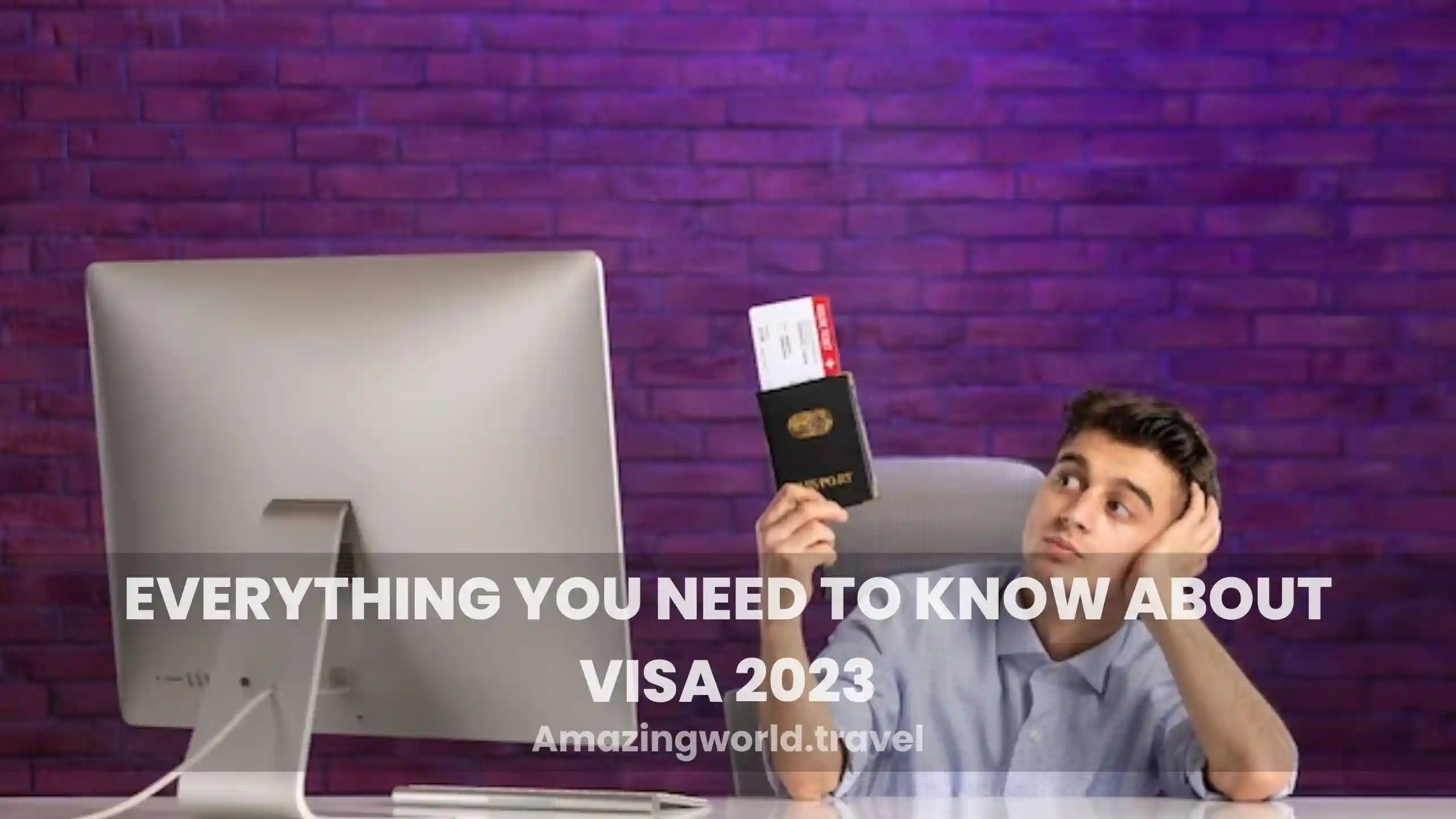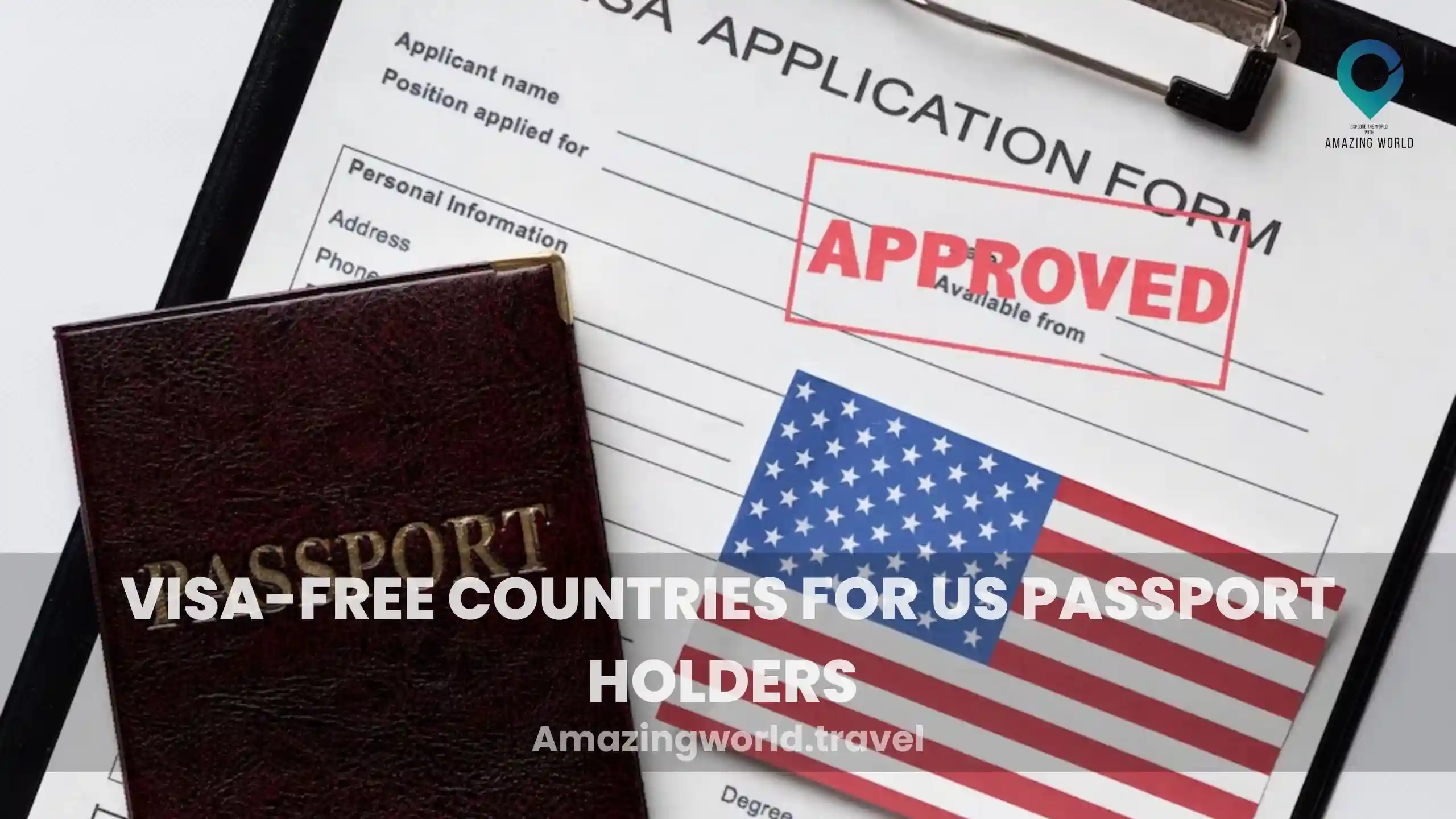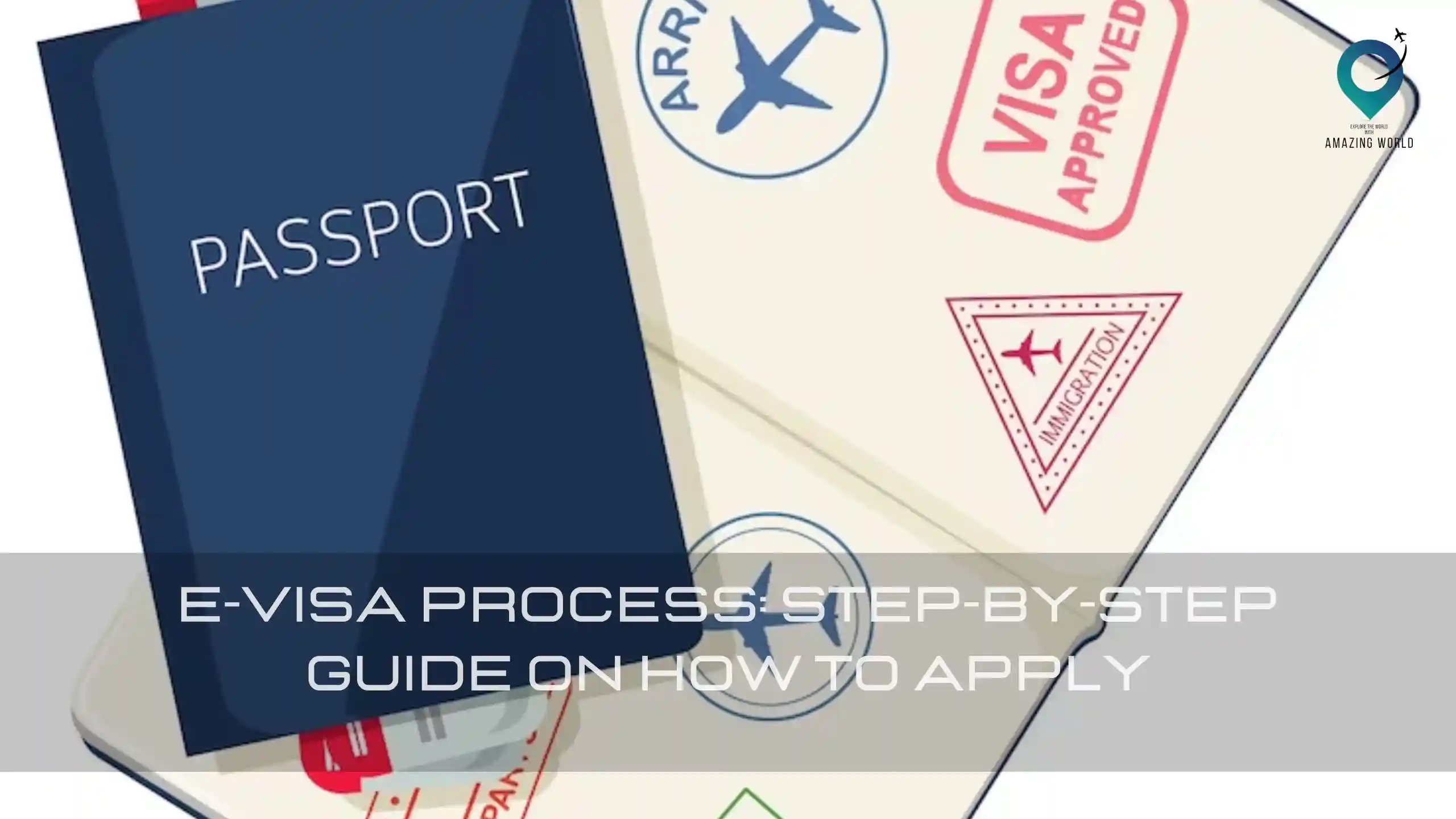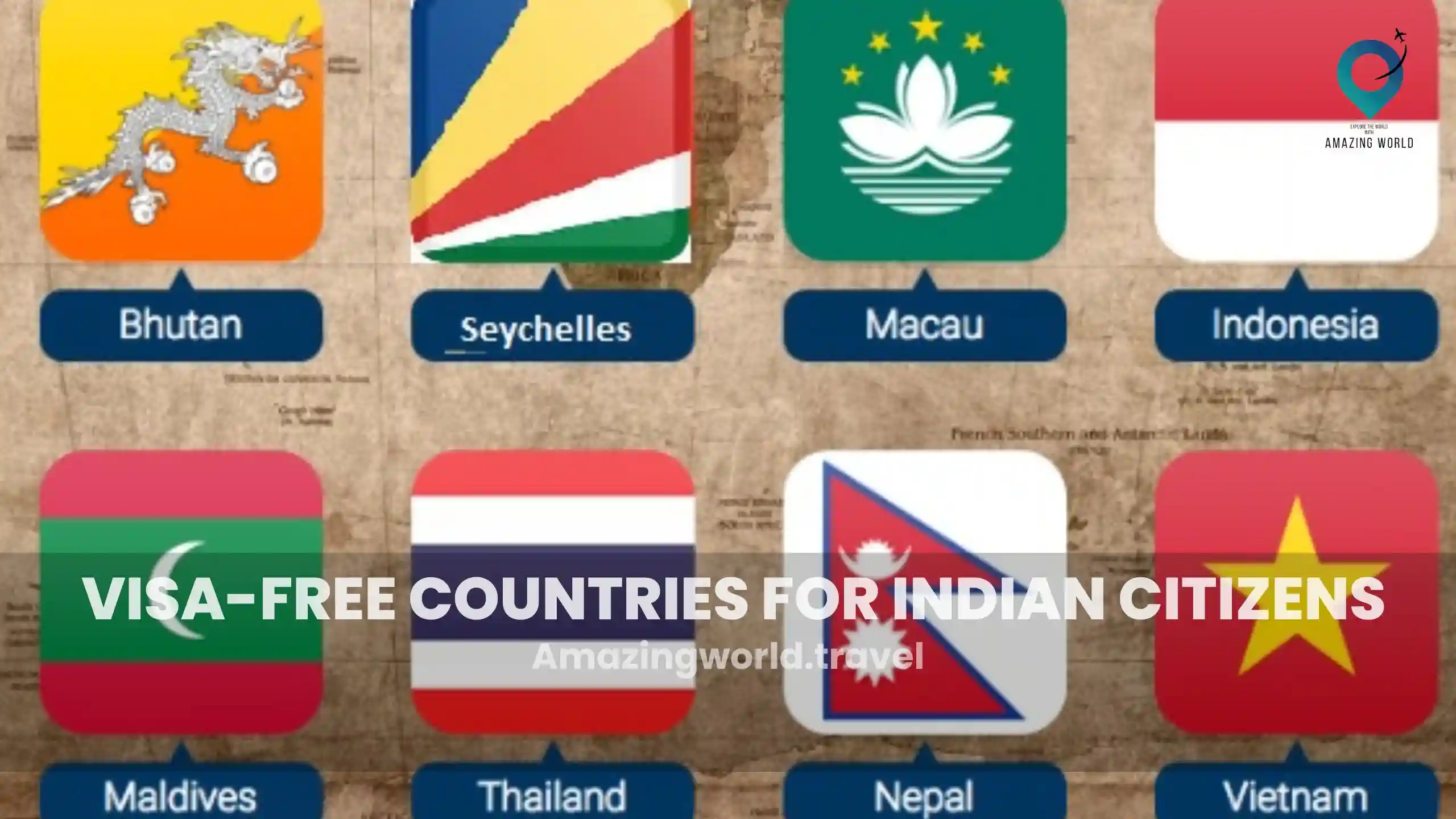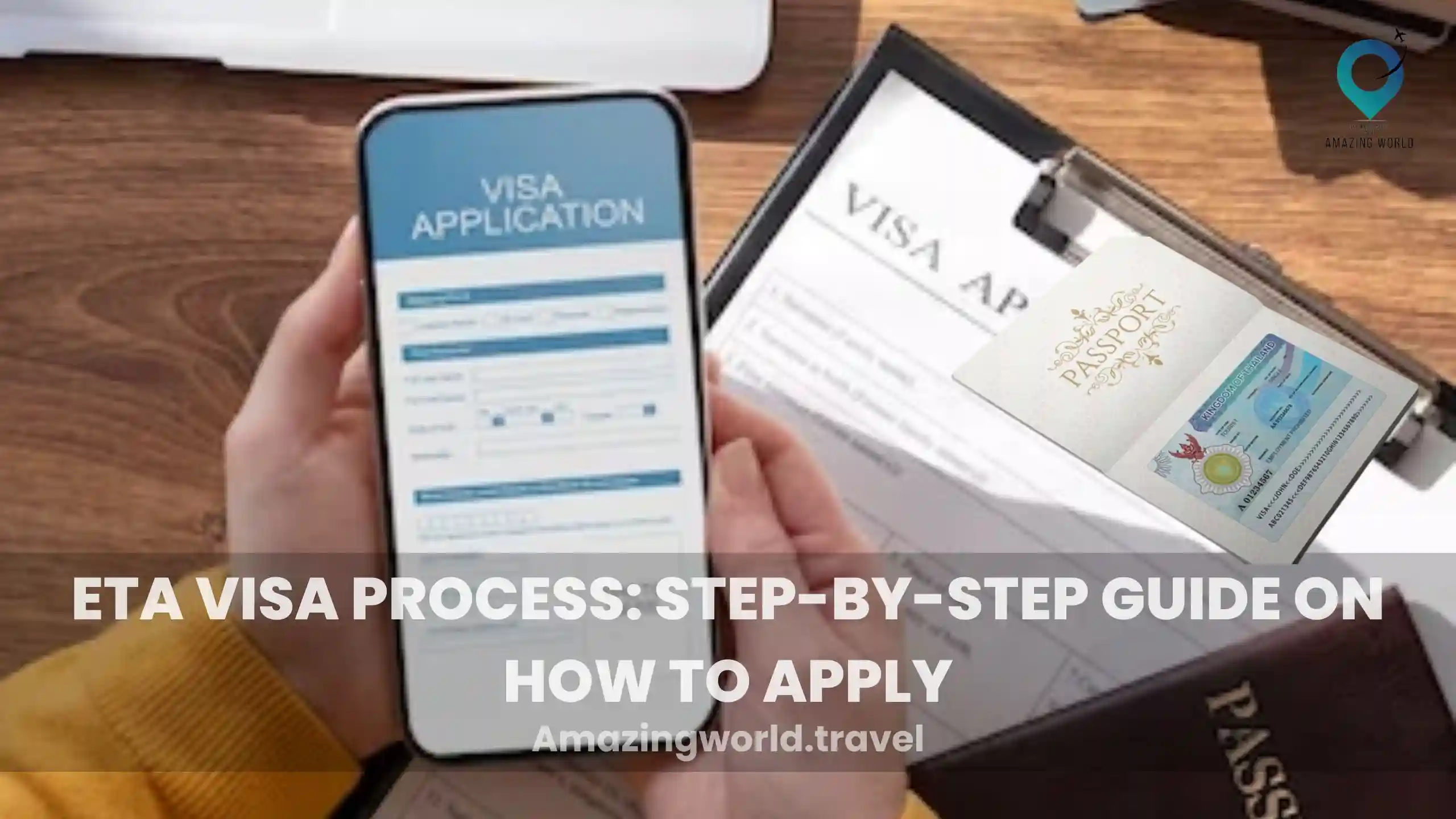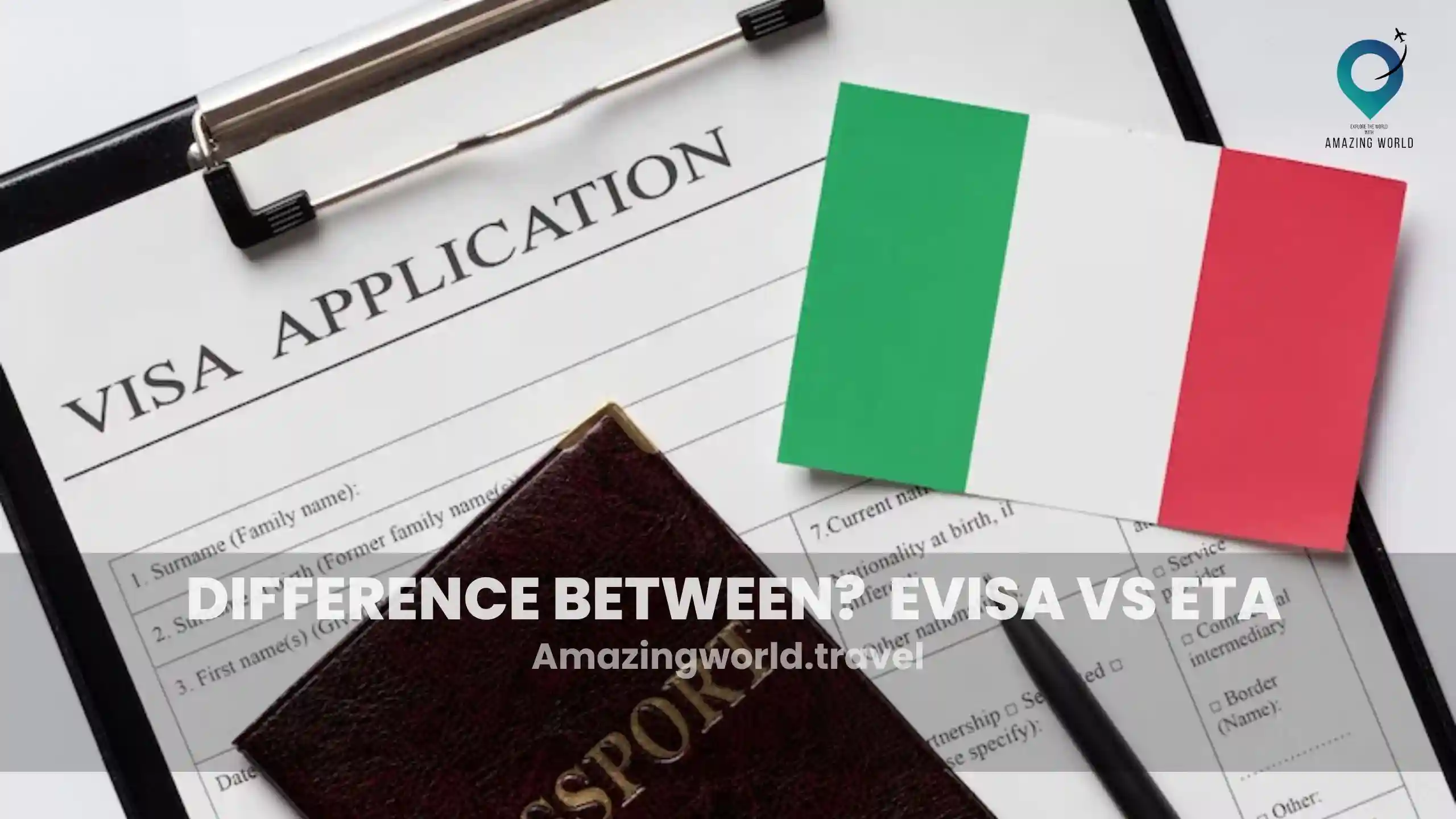Unlocking the Secrets: Everything You Need To Know About Visa 2023″
Table of Contents
Toggle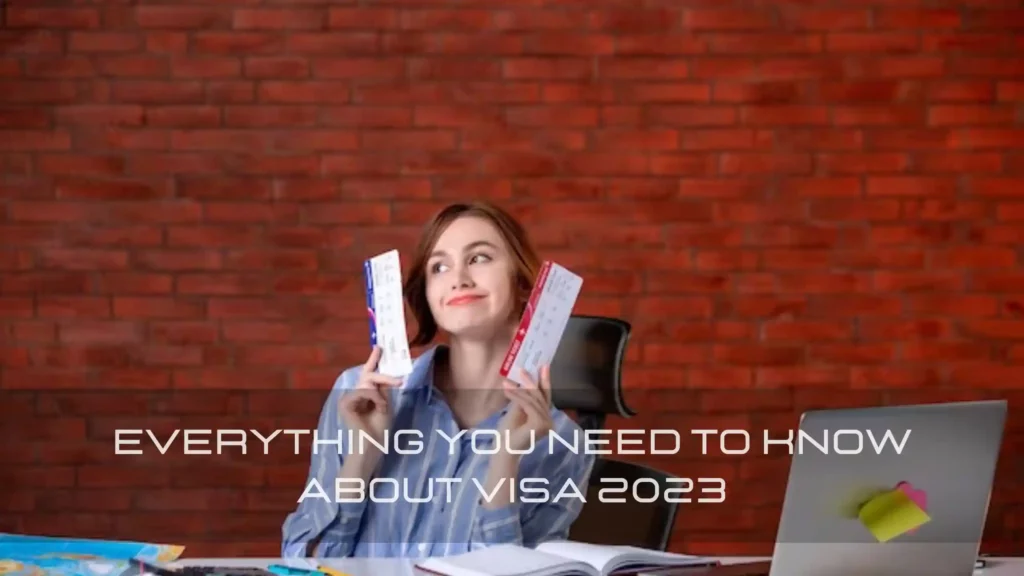
Are you ready to embark on a journey beyond borders? Curious about the secrets behind hassle-free international travel? Look no further! “Unlocking the Secrets: Everything You Need To Know About Visas 2023” is here to unravel the mysteries and empower you with the knowledge to explore the world.
Whether you’re dreaming of a tropical getaway, pursuing exciting career opportunities, or planning to study abroad, visas hold the key to making your dreams a reality. This comprehensive guide is designed to captivate your attention and equip you with the essential information you need to navigate the visa process effortlessly.
Unveil the hidden rules, requirements, and types of visas that countries around the world offer. From tourist visas that open doors to stunning landscapes, to work visas that unlock professional opportunities in foreign lands, and student visas that pave the way for educational enrichment—this guide has it all.
Delve into the secrets of visa application processes, and learn the tips and tricks to ace visa interviews. Discover the art of visa extensions and renewals, ensuring you can prolong your stay in the countries you love. Understand the common reasons behind visa rejections and how to avoid them, so you can confidently navigate the path to visa approval.
Did you know there are visa-free countries that welcome you with open arms? Explore the destinations where you can freely explore, no visa required. Plus, get insights into visa sponsorship, visa application centers, and stay updated on your visa’s progress through tracking and status updates.
We haven’t forgotten the small details! Learn the essential photo specifications for visa applications, ensuring your journey begins with a picture-perfect start.
The time has come to unravel the secrets of visas. Let this guide be your trusted companion, guiding you through the intricate pathways of visa requirements, types, costs, and validity periods. With our help, you’ll be equipped with the knowledge to confidently apply for visas, making your global dreams a reality.
What is a visa?
A visa is an official document or endorsement issued by the government of a country that allows individuals to enter, stay, or transit through that country for a specific purpose and duration. It is typically placed in the passport or travel document of the traveler.
Why do I need a visa?
A visa is a crucial requirement for international travel, and it serves multiple purposes depending on the destination country and the purpose of your visit. Here are some reasons why you may need a visa:
- Immigration Control: Visas play a key role in a country’s immigration control system. They help the government regulate and monitor the entry and stay of foreign nationals within their borders. By requiring a visa, countries can assess the eligibility and intentions of travelers before allowing them entry.
- National Security: Visas contribute to national security by allowing authorities to conduct background checks on individuals before granting them permission to enter the country. This helps prevent potential threats to public safety and security.
- Reciprocity: Many countries have visa requirements as a form of reciprocity. If a country requires visas for citizens of another country, it may do so in response to that country’s visa policies for its own citizens. Visa requirements are often based on bilateral agreements or diplomatic relations between countries.
- Control over Employment: Work visas or permits are specifically designed to regulate employment by foreign nationals. They ensure that individuals who wish to work in a particular country meet the necessary qualifications and that the job market is protected for the local workforce.
- Monitoring Length of Stay: Visas help authorities monitor and control the duration of a foreign national’s stay in the country. The visa’s validity period and any associated conditions determine the length of time an individual is permitted to stay, ensuring compliance with immigration laws and preventing overstays.
- Economic Impact: Visas also have an economic dimension. Some countries have specific visa categories, such as business visas or investment visas, that facilitate economic activities and attract foreign investment. These visas allow individuals to engage in business-related activities, such as attending meetings, conferences, or exploring business opportunities.
- Compliance with Laws and Regulations: Obtaining a visa ensures that you comply with the immigration laws and regulations of the country you plan to visit. It demonstrates your intention to enter the country legally and abide by the conditions and restrictions associated with your visa type.
- Consular Assistance: Having a valid visa can provide you with consular assistance from your home country’s embassy or consulate while you are abroad. In case of emergencies, such as lost passports or other unforeseen circumstances, consular services can provide support and guidance.
It’s important to note that visa requirements, regulations, and purposes may vary significantly from one country to another. Therefore, it is crucial to research and understand the specific visa requirements of your intended destination well in advance of your travel plans.
How do I apply for a visa?
The visa application process varies depending on the country and the type of visa you are applying for. Generally, you will need to complete an application form, submit supporting documents (such as your passport, photographs, proof of travel plans, and financial documents), pay the required fees, and attend an interview or biometric appointment, if necessary.
It is best to check the specific requirements and procedures of the country’s embassy or consulate where you plan to apply.
What are the different types of visas?
There are several different types of visas available, each serving a specific purpose and allowing individuals to engage in different activities during their stay in a foreign country. The exact types and categories of visas can vary from country to country, but here are some common types:
- Tourist Visa: A tourist visa is issued for individuals who plan to visit a country for tourism, vacation, or visiting friends and family. It usually allows a limited duration of stay and prohibits engaging in any form of employment or business activities.
- Business Visa: A business visa is intended for individuals traveling for business purposes, such as attending meetings, conferences, negotiating contracts, or exploring potential business opportunities. It may have specific restrictions on the type of business activities permitted and the duration of stay.
- Work Visa/Permit: A work visa or work permit is required for individuals who intend to work in a foreign country. It is typically tied to a specific job or employer and may have conditions related to the duration of employment, job position, and sometimes minimum salary requirements.
- Student Visa: A student visa is necessary for individuals who plan to pursue academic studies or enroll in educational programs in a foreign country. It may require proof of admission to an educational institution and often has specific requirements, such as minimum course load and academic progress.
- Transit Visa: A transit visa is required for individuals who are transiting through a country on their way to another destination. It allows a limited stay within the country’s designated transit area and typically does not permit leaving the airport or engaging in activities outside of transit.
- Medical Visa: A medical visa is issued to individuals who need to travel to a foreign country for medical treatment or medical purposes. It may require supporting documentation, such as medical reports or letters from healthcare providers.
- Family/Dependent Visa: Family or dependent visas allow close family members or dependents of a visa holder to accompany or join them in a foreign country. The eligibility and requirements for family visas vary, and they often require a relationship or dependency proof.
- Diplomatic/Official Visa: Diplomatic or official visas are issued to government officials, diplomats, or individuals traveling on official government business. They facilitate diplomatic and official engagements between countries.
- Investor/Entrepreneur Visa: Some countries offer investor or entrepreneur visas for individuals who are willing to invest in or establish businesses in the host country. These visas often have specific financial and business requirements.
- Cultural Exchange/Temporary Work Visa: Cultural exchange or temporary work visas are designed for individuals participating in cultural exchange programs, internships, or short-term employment opportunities.
These are just a few examples of visa types, and there may be additional categories specific to certain countries or regions. It is important to consult the official website of the embassy or consulate of the country you plan to visit for accurate and up-to-date information regarding visa types and their specific requirements.
What are the requirements for obtaining a visa?
The requirements for obtaining a visa depend on the type of visa and the country you are applying to. Typically, you will need a valid passport, completed application form, passport-sized photographs, proof of travel arrangements or accommodation, financial documents, and any additional documents specific to the visa type (e.g., employment offer letter for work visas or acceptance letter from an educational institution for student visas). It is important to review the specific requirements of the country you intend to visit.
How long does the visa application process take?
The visa application process duration can vary significantly depending on the country and the type of visa you are applying for. In some cases, it can take a few days to a few weeks, while in other cases, it may take several months. It is advisable to apply well in advance of your intended travel dates to allow for any processing delays.
Can I extend my visa?
Whether or not you can extend your visa depends on the country’s immigration laws and the type of visa you hold. Some countries allow visa extensions for certain visa categories, while others may require you to leave the country and reapply for a new visa. It is important to check the specific visa rules and regulations of the country you are visiting.
What should I do if my visa application is denied?
If your visa application is denied, you may have the option to appeal the decision or reapply. It is essential to review the denial letter or communication from the immigration authorities to understand the reasons for the denial.
If you decide to reapply, you should address any issues or deficiencies highlighted in the denial letter and provide additional supporting documents if necessary. Consulting with an immigration lawyer or seeking advice from the country’s embassy or consulate can be helpful in such situations.
Are there any exceptions or special programs for visa applications?
Yes, some countries offer exceptions or special programs that allow certain individuals to enter without a visa or with simplified visa procedures. For example, visa waiver programs may enable citizens of specific countries to visit for tourism or business purposes without a visa for a limited period.
Other programs, such as working holiday visas or investor visas, provide unique opportunities for work or investment in certain countries. It is advisable to check the immigration websites of the country you plan to visit for information on any such programs.
Can I travel without a visa?
Whether you can travel without a visa depends on your nationality and the destination country’s visa requirements. Some countries have visa-free agreements with certain nations, allowing their citizens to enter for tourism or business purposes without a visa for a limited duration.
However, most countries require a visa for foreign nationals to enter and stay for longer periods or for specific purposes. It is crucial to check the visa requirements of your destination country before you travel.
Do I need a visa for business travel?
The need for a visa for business travel depends on the country you are visiting and your nationality. Many countries require foreign nationals to obtain a business visa if they plan to engage in business-related activities, such as meetings, conferences, or negotiations.
However, some countries may have visa exemptions or special business visa categories that allow certain nationalities to travel for business purposes without a visa or with simplified procedures. It is important to check the specific requirements of the country you intend to visit for business.
Are visa fees refundable?
Visa fees are generally non-refundable, even if your visa application is denied. The fees cover the administrative costs associated with processing the visa application, regardless of the outcome. It is important to consider this when applying for a visa and ensure that you meet the eligibility requirements and submit the required documents accurately to avoid unnecessary expenses.
Can I use my visa to visit multiple countries?
The validity and scope of a visa depend on the type of visa you hold and the regulations of the country that issued it. Some visas are valid for a specific country only, while others may allow you to travel to multiple countries within a region or under certain agreements. For example, the Schengen visa allows entry into multiple European countries within the Schengen Area.
It is important to check the visa’s terms and conditions to understand its validity and any limitations on travel.
Do I need a visa for transit through a country?
The need for a transit visa depends on the country and the duration of your layover. Some countries have transit visa exemptions or visa-free transit arrangements, allowing passengers to transit through their airports for a limited period without a visa.
However, other countries may require a transit visa if you plan to leave the airport or have a longer layover. It is crucial to check the transit visa requirements of the country where you will be transiting to ensure a smooth journey.
What is the difference between a tourist visa and a work visa?
A tourist visa is typically issued to individuals who intend to visit a country for leisure, sightseeing, or visiting friends and family. It generally restricts the visa holder from engaging in any form of employment or business activities during their stay.
On the other hand, a work visa is issued to individuals who have a job offer or an employment opportunity in a foreign country. Work visas allow individuals to work legally in the host country for a specific period, often tied to a specific employer or job.
The requirements and restrictions for tourist and work visas can vary significantly, including the application process, supporting documents, duration of stay, and the ability to engage in work-related activities.
Are there any age restrictions for visa applications?
Age restrictions for visa applications vary depending on the country and the type of visa. Some countries may have specific visa categories for minors or senior citizens, while others may have age limits for certain visa types. For example, working holiday visas are often available to young adults within a certain age range. It is important to review the visa requirements and age restrictions of the country you plan to visit.
Can I study with a tourist visa?
In most cases, studying with a tourist visa is not permitted. Tourist visas are generally intended for leisure or short-term visits, and they usually do not allow individuals to enroll in educational institutions or engage in full-time studies.
If you plan to study abroad, you will typically need to obtain a student visa or a specific visa category designed for educational purposes. It is important to check the visa requirements of the country where you intend to study and apply for the appropriate visa accordingly.
What are the limitations of a visa?
Visas often come with certain limitations and conditions that visa holders must adhere to. These limitations can vary depending on the type of visa and the country’s regulations. Some common limitations include the duration of stay, the purpose of the visit (e.g., tourism, work, or study), restrictions on employment, and the requirement to maintain valid health insurance coverage.
It is important to familiarize yourself with the limitations of your visa and comply with the visa regulations during your stay to avoid any legal issues or penalties.
How long is a visa valid?
The validity of a visa varies depending on the type of visa, the country, and the specific circumstances. Some visas may be valid for a few days or weeks, while others can be valid for several months or years. The validity period typically indicates the timeframe within which you can enter the country.
However, it does not necessarily determine the duration of your stay, which is often determined by the immigration officer at the port of entry. It is essential to check the visa’s validity and the allowed duration of stay to ensure compliance with the immigration laws of the country.
Do I need a visa if I have dual citizenship?
Whether or not you need a visa if you have dual citizenship depends on the specific countries involved and the visa requirements of the destination country. Some countries may allow visa-free travel or have simplified visa procedures for their dual citizens, while others may require visas regardless of citizenship. It is crucial to check the visa requirements of the country you plan to visit and determine if any special rules apply to dual citizens.
Can I apply for a visa online?
Many countries now offer online visa application systems, allowing applicants to complete and submit their visa applications electronically. These systems often require applicants to create an account, fill in the necessary details, upload supporting documents, and make the payment online. However, not all countries have online visa application processes, and some may still require applicants to submit physical copies of their application forms and documents to the embassy or consulate. It is advisable to check the visa application procedures of the country you intend to visit for specific instructions.
What documents do I need to submit with my visa application?
The documents required for a visa application vary depending on the country, the type of visa, and the purpose of your visit.
However, some common documents include a valid passport, completed visa application form, passport-sized photographs, proof of travel arrangements or accommodation, financial documents (such as bank statements or sponsorship letters), and supporting documents specific to the visa category (e.g., employment offer letter or acceptance letter from an educational institution).
It is important to carefully review the visa requirements of the country you plan to visit and provide all the necessary documents to support your application.
Are there any medical requirements for obtaining a visa?
Some countries may require certain medical requirements or health screenings as part of the visa application process, particularly for long-term stays or specific visa categories. These requirements may include medical examinations, vaccinations, or proof of health insurance coverage.
The specific medical requirements vary depending on the country’s regulations and the purpose of the visit. It is advisable to check the visa requirements of the country you plan to visit and consult with a medical professional or travel health clinic to ensure compliance with any medical requirements.
Can I apply for a visa on arrival?
Visa-on-arrival is a facility offered by some countries where eligible travelers can obtain a visa upon their arrival at the airport or border checkpoint. The specific requirements and conditions for visa-on-arrival vary depending on the country.
Some countries offer this facility to certain nationalities, while others may require prior approval or online registration before arrival. It is important to check if the country you plan to visit offers visa-on-arrival and if you meet the eligibility criteria.
Do I need a visa if I have a layover in a country?
Whether you need a visa for a layover depends on the country and the duration of your layover. Some countries have transit visa exemptions or visa-free transit arrangements, allowing passengers to transit through their airports for a limited period without a visa.
However, other countries may require a transit visa if you plan to leave the airport or have a longer layover. It is crucial to check the transit visa requirements of the country where you will be transiting to ensure a smooth journey.
Conclusion
obtaining a visa is an important aspect of international travel for many individuals. A visa is an official document or endorsement issued by a country’s government that allows entry, stay, or transit through that country for a specific purpose and duration. The visa application process, requirements, and types of visas vary from country to country.
To apply for a visa, you typically need to complete an application form, submit supporting documents, pay the required fees, and possibly attend an interview or biometric appointment. The visa application process duration can vary, so it’s important to apply well in advance of your intended travel dates.
Overall, navigating the visa process can be complex, and it’s crucial to carefully follow the requirements and regulations of the country you plan to visit. Seeking guidance from the country’s embassy or consulate and consulting with immigration professionals can be helpful in ensuring a smooth visa application process.
How much did you like Our detailed Unlocking the Secrets: Everything You Need To Know About Visa 2023″? Review Also, please share these Blogs with your friends on social media.
Related Article –
- Best & Safest Places for Solo Female
- 20 Must Need to know Safety Tips for solo female
- Best Adventure Activities for Solo Female Travelers
- 20 Reasons Why Women Travel Solo
- 15 Tips for Solo Camping and Hiking for Women
- Traveling Abroad: How to Safe from Online Phishing & Scams
- What are some tips for traveling with children?

Meet David Hoper, a passionate travel Blog writer with 7+ years of experience in travel content. Through his exemplary storytelling and engaging narratives, he shares his experiences and brings destinations to life. With a keen eye for detail and a love for exploration, he has cultivated a diverse portfolio of travel blogs that inspire and inform readers worldwide.
